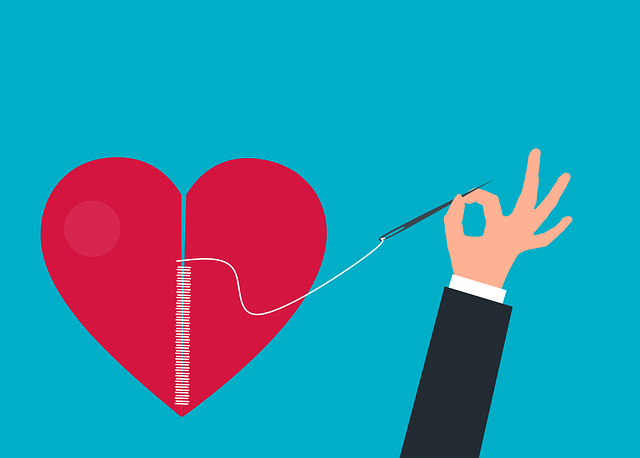Divorce is one of life’s most significant transitions, leaving a profound impact on emotions, mental health, and self-identity. The end of a marriage often brings a whirlwind of emotions, from grief and anger to relief and hope for a fresh start. As challenging as this chapter may seem, it is also an opportunity for growth, healing, and self-discovery. By focusing on emotional healing and prioritizing self-care, individuals can rebuild their lives and emerge stronger.

Emotional healing post-divorce begins with acknowledging the emotions you are experiencing. Divorce, much like grief, comes in waves, and it is common to experience denial, anger, bargaining, depression, and eventually acceptance. It is vital to give yourself permission to feel these emotions without judgment. Suppressing feelings can delay the healing process and manifest in unhealthy ways. Journaling, speaking with a trusted friend, or seeking professional help can provide an outlet for these emotions, making it easier to process the changes you are going through.
Self-compassion is the cornerstone of emotional healing after divorce. It is easy to fall into the trap of self-blame or to feel unworthy of love and happiness. However, research shows that practicing self-compassion can reduce feelings of shame and improve overall mental health. Treat yourself with kindness, as you would a close friend in a similar situation. Acknowledge that it is okay to feel vulnerable and remind yourself that healing is not linear. Every small step forward is progress, even if there are setbacks along the way.
Rebuilding your sense of identity is another critical aspect of post-divorce recovery. During a marriage, individuals often intertwine their identities with their partners, making it difficult to define themselves outside the relationship. Use this period to rediscover your interests, values, and passions. Consider taking up a new hobby, enrolling in a class, or revisiting activities you once loved but set aside. This not only boosts self-esteem but also helps create a sense of purpose and direction.
Setting boundaries is an essential step toward emotional healing. If communication with your ex-spouse is necessary, such as for co-parenting, establish clear and respectful boundaries to minimize conflict and emotional distress. Boundaries also extend to social interactions. Well-meaning friends or family may offer unsolicited advice or inquire about your divorce. Politely let them know what you are comfortable discussing and assert your need for privacy when necessary.

One often overlooked aspect of healing is managing your environment. After a divorce, your living space may carry memories that evoke pain or sadness. Consider reorganizing, redecorating, or even moving to create a space that feels fresh and reflective of your new chapter. Surround yourself with positivity through small touches, such as adding plants, artwork, or sentimental items that uplift your mood. A change in environment can have a significant impact on your emotional well-being.
Physical self-care is deeply intertwined with emotional healing. Divorce can take a toll on your body due to stress, sleep disruptions, or changes in appetite. Reestablishing a routine that prioritizes physical health can improve your mental state. Engage in regular exercise, which has been proven to reduce stress and boost mood through the release of endorphins. Even a daily walk in nature can be therapeutic. Additionally, focus on balanced nutrition and ensure you are getting enough sleep, as these are foundational to overall wellness.
Seeking support is crucial during this time. While independence is empowering, it is equally important to recognize that you do not have to navigate this journey alone. Support groups for divorcees can provide a sense of camaraderie and understanding. Therapy, whether individual or group, offers a safe space to explore your feelings and gain valuable coping strategies. Statistics from 2025 indicate that individuals who actively participate in support groups or counseling post-divorce report a 30% higher satisfaction rate in their recovery journey compared to those who do not seek help.
Another vital component of self-care is reframing your mindset. Divorce can often feel like a failure, but it is essential to view it as a turning point rather than an end. Reflect on the lessons learned from the relationship and use them to grow. This perspective not only fosters personal development but also instills hope for the future. Gratitude exercises, such as listing three positive aspects of your day, can help shift your focus from loss to the opportunities that lie ahead.
Social connections play a significant role in the healing process. Rebuilding or strengthening relationships with friends and family can provide emotional support and a sense of belonging. However, be mindful of surrounding yourself with people who uplift and encourage you rather than those who drain your energy or add to your stress. Building a strong support network is invaluable in regaining confidence and navigating life after divorce.

As you move forward, consider setting personal goals that align with your aspirations. These goals can range from career advancements and financial stability to personal development milestones. Having a sense of direction provides motivation and reinforces the idea that life after divorce can be fulfilling and rewarding. Break these goals into manageable steps to avoid feeling overwhelmed, and celebrate your achievements along the way.
It is important to address the role of forgiveness in emotional healing. Forgiveness does not mean condoning hurtful actions or forgetting the past; rather, it is about releasing the burden of anger and resentment for your own peace of mind. Forgiving your ex-spouse, and perhaps even yourself, is a liberating act that allows you to move forward without the weight of negativity holding you back. This process takes time, but it is a powerful step toward emotional freedom.
In conclusion, emotional healing and self-care post-divorce are multifaceted journeys that require time, effort, and patience. By embracing your emotions, practicing self-compassion, setting boundaries, and prioritizing your physical and mental health, you can create a solid foundation for recovery. Seek support, reframe your perspective, and focus on personal growth to navigate this challenging period. Remember, divorce marks the end of one chapter but also the beginning of another, filled with potential and possibilities for a brighter future.

